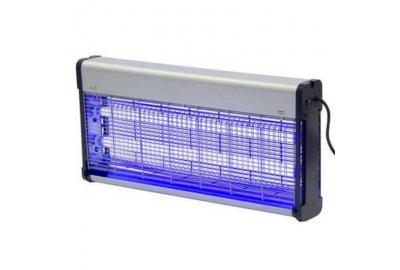Nobody likes flies, they are a nightmare! Especially when you have a few flying around your home after leaving your window open. Have you ever been in bed, relaxed and peaceful winding down ready to get some rest for the following day, when all of a sudden you hear a buzzing noise coming from somewhere in your room. You ignore it but it happens again, you wonder what is going on! You quickly flick the light on and notice a fly has managed to sneak it's way into your room, what a pain this can be. Next thing you know, you look something like this!
Facts about houseflies
Houseflies can be found all over the world and are the most famous of 300,000 species of flies. House flies are actually beneficial because they accelerate recycling process by decomposing organic waste.
- House flies are able to move their wings 200 times per second.
- House fly can fly at the speed of 5 miles per hour.
- House fly produces sticky substance which keeps the fly firmly attached to the ground (it acts like glue after landing).
- House fly relies mostly on the sense of smell when it searches for food. Sense of smell is located in the antennas.
- House fly eats sugary liquids and different kinds of organic waste. All food needs to be turned into liquid before ingestion because fly does not have teeth and ability to chew food. The house fly spits digestive juices on the food to decompose it before swallowing.
- House flies are carriers of numerous pathogenic bacteria. Gangrene, tuberculosis, dysentery, anthrax, plague and different types of poisoning are just some of diseases transmitted by flies.
- House flies defecate every couple of minutes. This is one of the factors that facilitate transmission of diseases.
- House fly can survive from 30 to 60 days.
With all that in mind, a fly killer is a very good idea!
Insect Killer FAQ's
Q. How long will my bulb last?
A. The efficiency of a lamp will deteriorate as it is used so it is important to buy good quality lamps. Your lamp will generally need replacing after 12 months although some cheaper lamps will last as little as 2-3 months.
Q. Why do you need a shatter resistant lamp?
A. Shatter resistant lamps should always be used if your fly killer is situated in food preparation areas. The plastic coating will contain any pieces of glass in the event of a lamp being broken.
Q. Am I safe to leave my fly killer on overnight?
A. Yes, During the months of the year where insects are a problem we advise to leave the unit on 24/7, it will perform best when it is the only source of light so during the night it will perform more efficiently.
Q. Is there anywhere I should avoid placing my fly killer?
A. Never mount your fly killer in a window or doorway and avoid places where there is moving or hot air.
Q. How do I work out which fly killer would be best for me.
A. There is no 'one size fits all' what is good for 1 situation may not be good for another. Some things to consider would be
- Area of coverage required
- Type of environment
- Does it need to be visibly attractive
- How do you need it mounting
- Electric Grid or Glue board
Once you have all this information then it will be easier to decide which fly killer you require.

